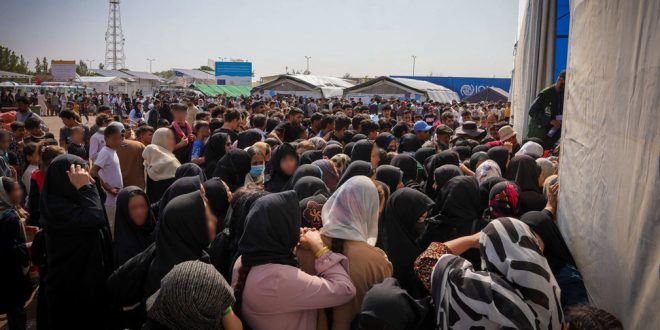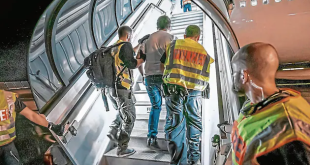KABUL — The United Nations sounded the alarm Tuesday over the staggering number of Afghan returnees arriving from Iran, warning that the pace and scale of returns are crippling already fragile support systems in Afghanistan. UN Special Representative Roza Otunbayeva, after visiting the Islam Qala border crossing in Herat province, called for urgent international intervention to address what she described as an unfolding humanitarian emergency.
More than 1.4 million people have returned or been forcibly repatriated to Afghanistan so far this year—over a million from Iran alone—as Iranian authorities enforce a March 20 deadline for undocumented migrants to leave. On some days in June, returnee numbers peaked above 28,000. Many of those crossing back are exhausted, traumatized, and arrive with little more than a suitcase, relying heavily on aid agencies for survival.
Otunbayeva warned that the “sheer volume of returns—many abrupt, many involuntary—should be setting off alarm bells” globally. She said the combination of remittance loss, job market saturation, and social instability could lead to renewed displacement, mass onward migration, and broader regional insecurity.
The crisis is being compounded by deep funding cuts to humanitarian programs. Aid agencies have slashed health and education services, even as needs surge. Nicole van Batenburg of the International Federation of the Red Cross reported widespread illness among returning children, including scabies and fevers, and said hundreds of children are being reunited with parents daily after getting lost in the chaos.
“Afghanistan is an unseen crisis,” van Batenburg said, warning that the world’s attention has drifted elsewhere while millions struggle in deteriorating conditions. “These people have nothing, and they’re returning to places where even survival is uncertain.”
The Norwegian Refugee Council echoed these concerns, noting that some of its Afghan staff are sheltering returnees in their own homes due to the collapse of local infrastructure. While Afghan authorities are making efforts to respond, aid groups say the scale of return is simply too great for the country to handle without robust international support.
 Afghanistan Times
Afghanistan Times




